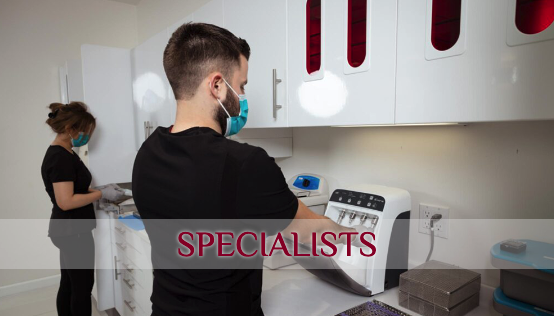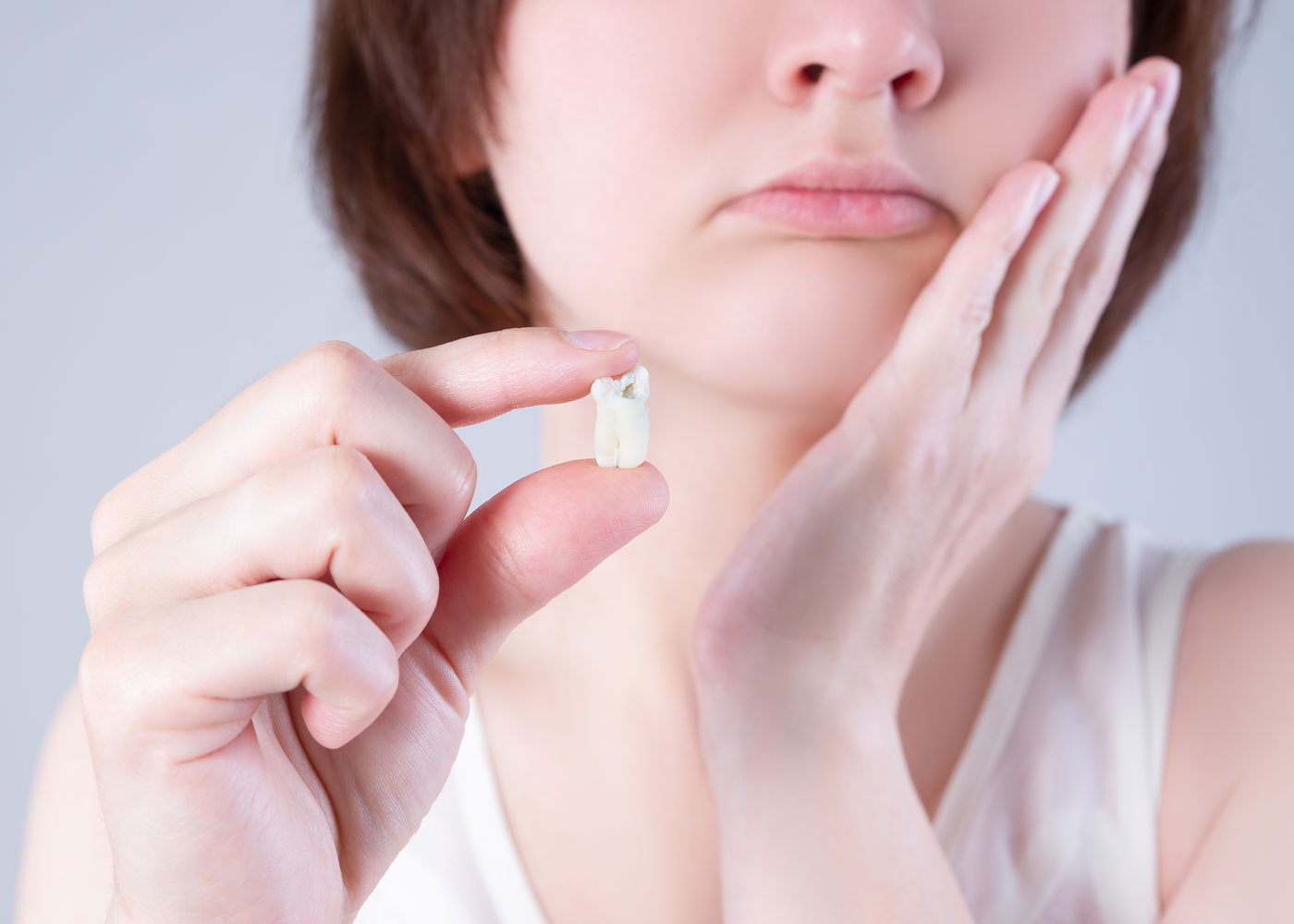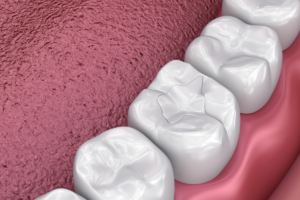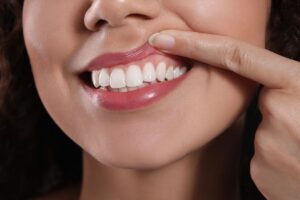Wisdom tooth extraction is a common procedure your doctor might recommend for better oral health, and to prevent further issues, since wisdom teeth are impossible to clean properly. In this article, we discuss what you should expect from wisdom tooth removal, and answer the most frequently asked question: What are the dos and don’ts after wisdom tooth extraction?
What to Expect During a Tooth Extraction?
If you are undergoing surgery for a tooth extraction, you will first be sedated with a local anesthesia. Then the procedure begins. It usually takes 40 minutes to cut the gum and remove the teeth. After the procedure, a friend or a family member should drive you home.
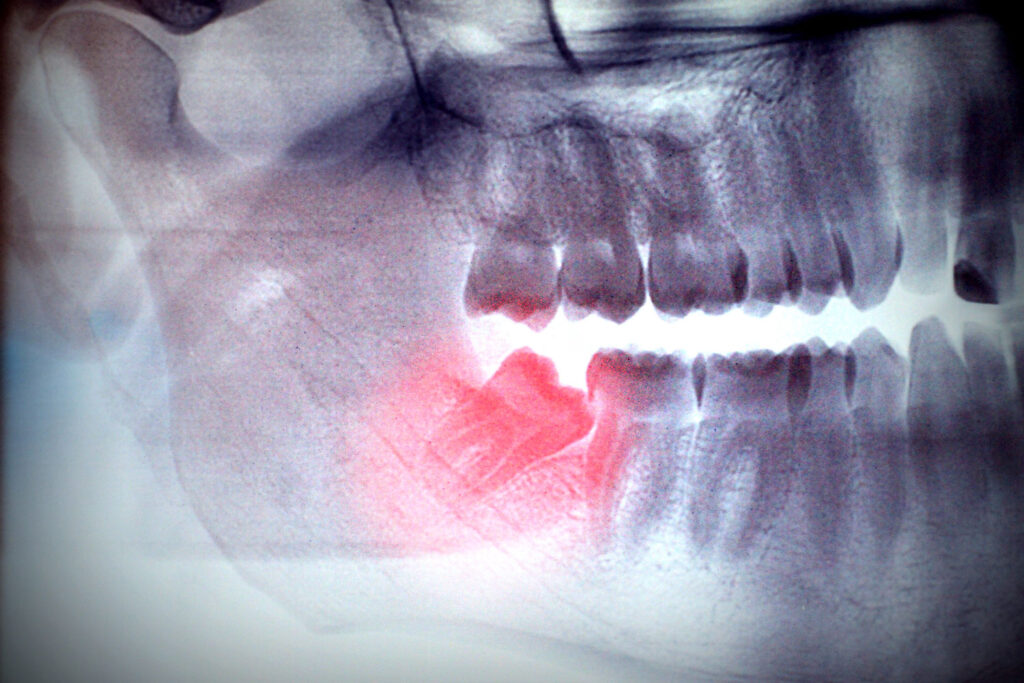
What to Expect After a Tooth Extraction?
After tooth extraction, there are challenges you need to be prepared for. Here are the most common ones:
Bleeding
Your doctor leaves a gauze in the extraction site to help stop the bleeding. You will be asked to gently bite down on the gauze. The bleeding should stop after half an hour. If the bleeding continues or you have severe bleeding, contact your doctor. Don’t forget that activity worsens the bleeding. So, lie down and reduce your activity for the first day after your procedure.
Pain
The bad news is that tooth extraction is painful, but the good news is that your doctor will help you cope with the pain easier. Taking your prescribed pills on schedule would be best, which usually starts before your anesthetic wears off. Most people experience the worst discomfort in the first six hours. The pain should not bother you much after that period.
Swelling and Bruising
Oral surgeries, including wisdom tooth removal, often leave swelling and bruises. You can minimize the swelling by applying an ice pack over your face. Place the ice pack on the spot every couple of hours for twenty minutes on the first day. After that, you need to use a warm compress three times a day for twenty minutes to reduce swelling and bruises.
Diet
The first step in your post-operation recovery is staying hydrated. However, do not use straws since the sucking motion worsens the bleeding. Start with soft and nourishing food; after several days, you can eat more solid food, but not hard or crunchy. After a couple of weeks, you might be able to eat crunchy food. Nonetheless, never skip a meal and always have nourishing meals to heal faster.
Nausea
Sometimes the anesthetic or pain medicine makes you nauseous. We recommend you eat a small amount of soft food before taking your pill. If the medication is not what has caused your nausea, contact your doctor.
Numbness
Depending on the type of anesthetic you receive, your mouth might feel numb for six to eight hours. Do not chew or drink hot liquid when your mouth is numb, as you might unknowingly chew on your tongue or burn your mouth.
Infection
There is a small risk of infection from the first week to a couple of months after the surgery. If your gum is infected, you will experience pain, firm swelling, redness, milky fluid, and a fever. If you suspect an infection, contact your doctor immediately.
Dry Socket
Dry socket or osteitis happens when the blood clot is not formed completely, and your mouth bacteria colonize the walls of the socket. It might cause inflammation and pain, but it will be treated on its own. If the pain becomes intolerable, contact your doctor.
Stitches
Sometimes stitches are used in wisdom tooth extraction procedures. If stitches are needed, a dissolvable type is usually used, which disappears in five to seven days. Your doctor will give further instructions if the sutures should be removed.
Allergy
You might develop an allergic reaction after taking antibiotics, pain relievers, or anesthetics. The most common symptoms of an allergic reaction include rash, hives, and itching. More serious symptoms might occur in severe allergic reactions such as anaphylaxis. These symptoms include the swelling of throat, lips, and tongue, rapid heartbeat, and difficulty breathing. Contact your doctor in case of any allergic reaction.
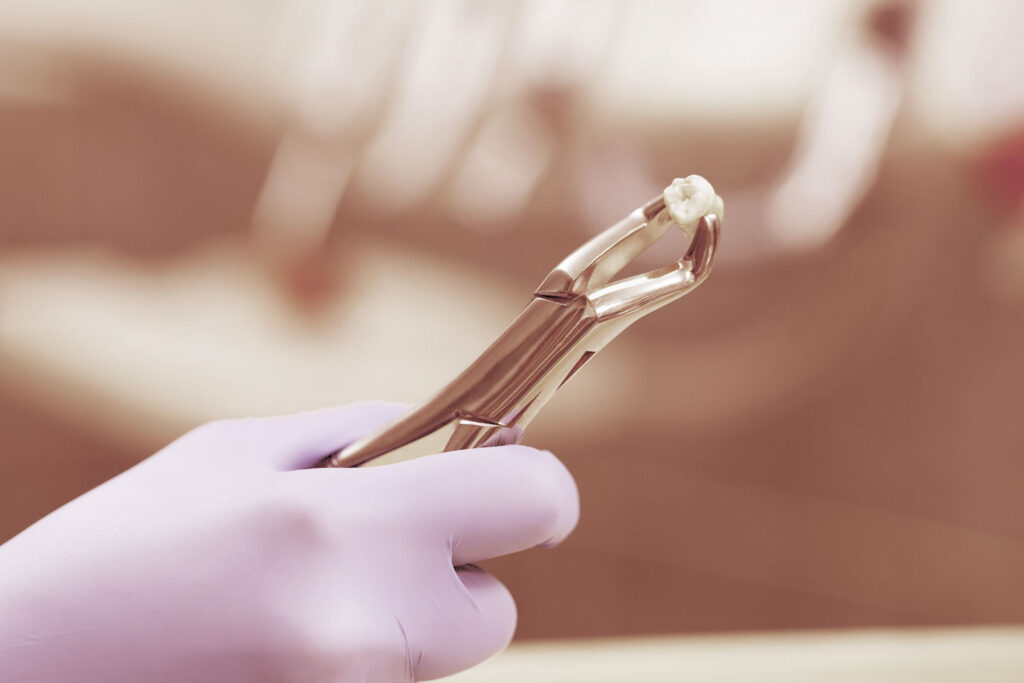
The Dos and Don’ts after Wisdom Tooth Extraction in a Glance
To sum up, here are the dos and don’ts after wisdom tooth extraction:
Dos
- Gently bite on the gauze to help with blood clotting;
- Take your painkillers without missing the dosage;
- Use an ice pack on your face for the first 24 hours to reduce swelling;
- Keep yourself hydrated by drinking plenty of liquids;
- Eat soft food for the first couple of weeks, then you can eat crunchy food;
- Brush your teeth 24 hours after your procedure.
Don’ts
- Don’t use a straw or smoke as a sucking motion worsens bleeding and causes a dry socket;
- Avoid crunchy food for at least a week to recover faster;
- Don’t use an ice pack two days after your procedure, instead use a warm compress;
- Don’t use mouthwash containing alcohol, and don’t wash your mouth vigorously.
Do You Need Help?
This article discussed the dos and don’ts after wisdom tooth extraction. If you want to ensure that your doctor takes a biological approach to tooth extraction and supports you during your recovery, we would like to introduce Aria Dental Care in Mission Viejo, Ca.
At Aria Dental, we are committed to providing the highest standards of dentistry for all oral issues, from routine checkups to complex therapies, in a convenient environment. Our dentists tend to save every tooth with same-day emergency care, even on Saturdays. Contact us for a consultation appointment now.
FAQ about Tooth Extraction
When can I smoke after wisdom tooth extraction?
You have to wait at least three days before you are back to smoking.
What can I eat after wisdom tooth extraction?
We recommend avoiding hard and crunchy food for the first few weeks.
When can I brush my teeth after wisdom tooth extraction?
You can brush your teeth after 24 hours. However, don’t wash your mouth vigorously.
How long should I take painkillers after wisdom tooth extraction?
Six hours after your procedure, you will have less pain and can reduce painkillers.
How to prevent dry sockets after tooth extraction?
Avoid using straws and smoking since sucking motion leads to dry sockets.









